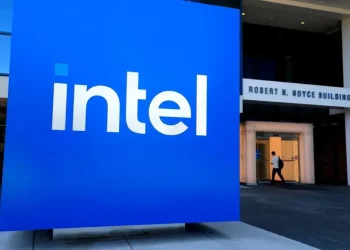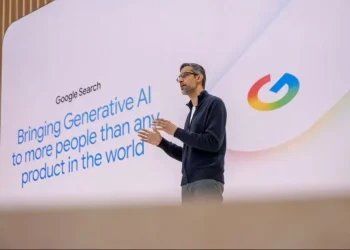Apple Faces a Challenging 2025, but the Future Isn’t All Gloom
Siri’s AI Upgrade Faces Delays
When Apple introduced its revamped Siri in June 2024, the company promised a groundbreaking shift in how its digital assistant interacts with users. The vision was clear: Siri would seamlessly cross-reference emails, texts, and flight data to answer complex questions like, “When is my mom’s flight landing?” followed by “What’s our lunch plan?”
However, that future is now further away than expected. On March 7, Apple announced it was delaying an upcoming Siri upgrade designed to provide more personalized responses and execute actions within apps. Bloomberg reported that the postponement has caused internal frustration, with Apple’s Siri division calling the delay “ugly” and “embarrassing.”
As artificial intelligence continues to redefine how people work, communicate, and access information, Apple’s position in the AI race is under scrutiny. The company revolutionized mobile computing with the iPhone in 2007, and now, it’s expected to do the same with AI. However, competitors are rapidly advancing, releasing new AI models, chips, and software features at an unprecedented pace.
Financial and Trade Challenges Loom
Beyond AI setbacks, Apple is also grappling with economic challenges. The company faces potential tariffs on Chinese imports, which could disrupt its supply chain. CEO Tim Cook revealed in a January earnings call that Apple’s sales in China had declined by 11% year-over-year. Additionally, global iPhone revenue—Apple’s financial backbone—failed to meet Wall Street’s expectations, contributing to a 12% drop in Apple’s stock value year-to-date.
Despite these setbacks, Apple remains resilient. Experts point to the iPhone’s ubiquity and strong user base as a key advantage.
“If times are tough, Apple is in a good position because their main business is a smartphone,” said Barton Crockett, a senior analyst at Rosenblatt Securities. “And the smartphone is arguably now a consumer staple—one of the most indispensable devices today.”
Apple’s Struggle to Lead the AI Race
Concerns have been mounting over Apple’s AI progress. The company’s AI initiative, branded as Apple Intelligence, has lagged behind competitors like Google and Samsung. While Apple rolled out its first set of AI features in October 2024, these updates arrived months after rivals had already introduced AI-powered tools on their devices.
One of Apple’s most ambitious AI upgrades involves overhauling Siri to function more intuitively, allowing users to retrieve old messages, edit photos, or find a lost recipe simply by asking. However, Bloomberg reported that these features were originally scheduled for an April 2025 software update but have now been postponed.
Company spokesperson Jacqueline Roy acknowledged the delay:
“It’s going to take us longer than we thought to deliver on these features, but we anticipate rolling them out in the coming year.”
Meanwhile, competitors continue to refine their AI assistants. Google’s Gemini AI now customizes responses based on a user’s search history, while Amazon has introduced Alexa+, a version of Alexa that remembers user preferences.
“Apple needs to stay relevant,” said Ben Bajarin, CEO of Creative Strategies. “The fact that they don’t have much to show for their AI efforts is what concerns most people.”
A Rare Setback for Apple
Apple is no stranger to market challenges, particularly in China, where domestic brands are gaining ground. The company has also previously navigated U.S. tariffs, managing to avoid some penalties during the Trump administration. However, product delays of this scale are unusual.
“I can’t recall Apple delaying a major feature like this before,” said Gene Munster, a longtime Apple analyst and managing partner at Deepwater Asset Management. “It doesn’t mean Apple has lost its edge, but it does indicate some scrambling internally.”
Beyond the iPhone: Apple’s Next Move
While the iPhone remains central to Apple’s business, the company is under pressure to innovate beyond smartphones. Consumers today upgrade their phones primarily out of necessity rather than excitement over new features. This makes it critical for Apple to establish itself in the next technological frontier—likely AI.
So far, Apple hasn’t proven it can lead in AI. The longer it takes for Siri’s new capabilities to roll out, the longer Apple will face skepticism about its AI ambitions.
Despite these concerns, some analysts remain optimistic. Dan Ives of Wedbush Securities recently wrote that Apple’s stock could reach new highs in 2025. Meanwhile, Cook reported strong iPhone sales in markets where Apple Intelligence features have already been deployed.
There may also be strategic reasons behind Apple’s decision to delay Siri’s new capabilities. A rushed rollout could lead to embarrassing missteps—like Google’s AI-generated search results that erroneously suggested putting glue on pizza.
In addition to AI, Apple is reportedly working on a slimmer iPhone model, according to reports from Bloomberg, The Information, and The Wall Street Journal. A fresh design could help reinvigorate interest in the iPhone as Chinese rivals experiment with innovative form factors, such as Huawei’s foldable “accordion-style” smartphone.
Looking Ahead
The Siri delay may be frustrating, but it’s not enough to call Apple’s overall vision into question.
“The roadmap is clear—Apple’s AI capabilities will continue to evolve,” said Crockett. “The future functionality of the iPhone will be better than the past. There’s still plenty to look forward to.”
While Apple faces short-term hurdles, its long-term prospects remain promising. The AI race is far from over, and Apple still has the potential to redefine the future of smart devices—just as it did with the iPhone.
This article was rewritten by JournosNews.com based on verified reporting from trusted sources. The content has been independently reviewed, fact-checked, and edited for accuracy, neutrality, tone, and global readability in accordance with Google News and AdSense standards.
All opinions, quotes, or statements from contributors, experts, or sourced organizations do not necessarily reflect the views of JournosNews.com. JournosNews.com maintains full editorial independence from any external funders, sponsors, or organizations.
Stay informed with JournosNews.com — your trusted source for verified global reporting and in-depth analysis. Follow us on Google News, BlueSky, and X for real-time updates.














